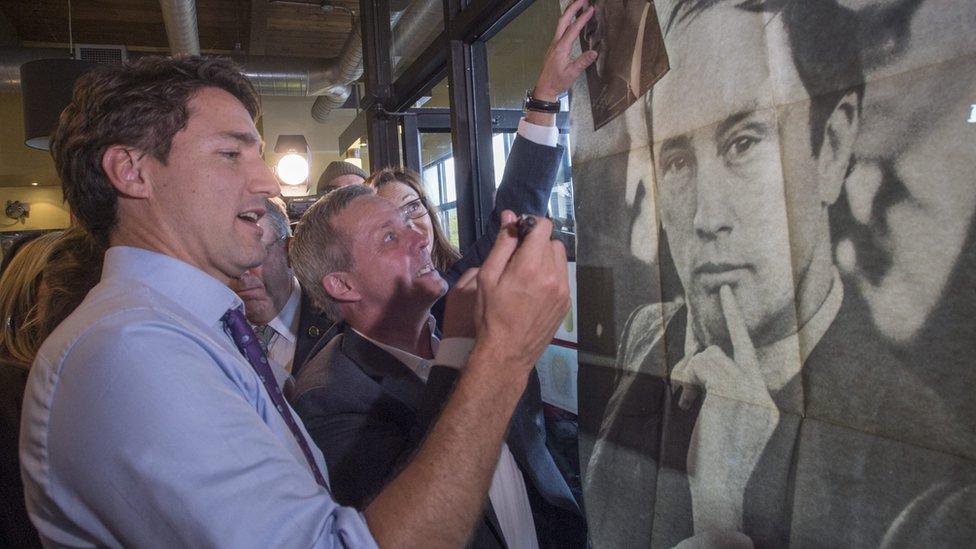Justin Trudeau's first year as prime minister
- Published
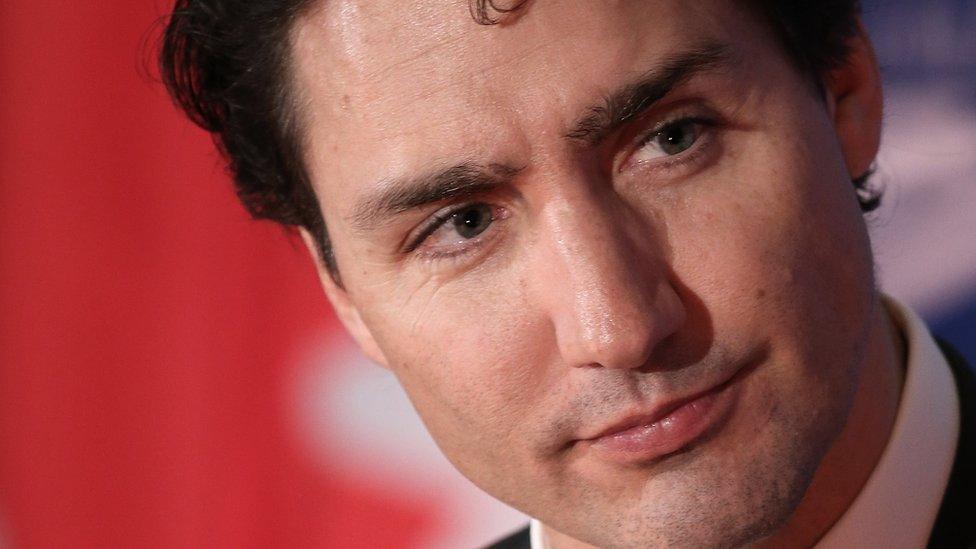
Mr Trudeau's second year may not be as smooth as his first
It was an election that launched a thousand selfies, including shirtless ones.
One year ago, the federal Liberals swept to victory in Canada and Justin Trudeau became prime minister-elect.
At the time, it was considered a surprise, decisive, win.
Twelve months later Mr Trudeau remains in an extended honeymoon with the voting public, who like his accessible style and ability to garner glowing international reviews.
Canadians are also feeling optimistic about the direction, external of their country, more so than a number of other nations.
Lorne Bozinoff, founder of the polling firm Forum Research, says the prime minister has done well "both in substance and style" over the past year - charming Canadians with his open manner and moving ahead on key election commitments.
"The Liberals - and Justin Trudeau in particular - are off to a very good start," he said.
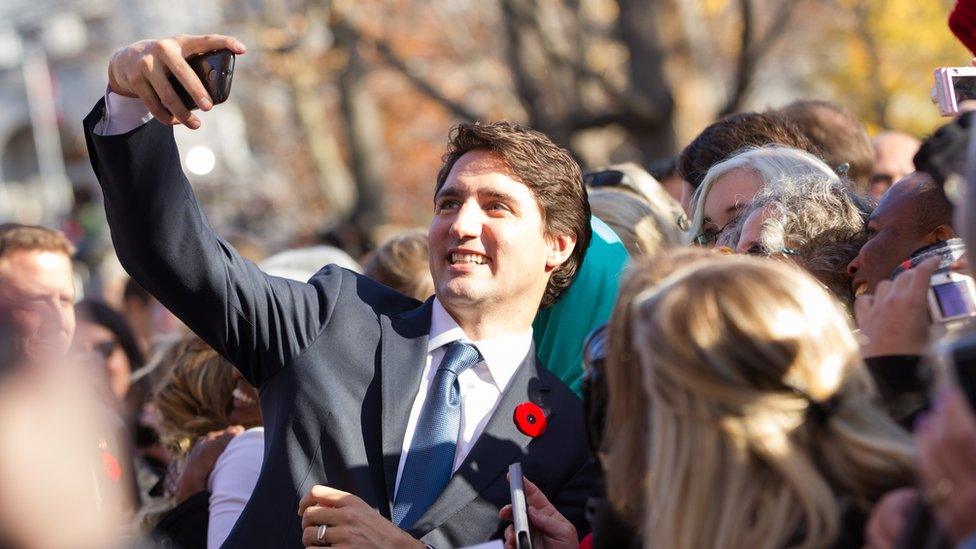
Canadian Prime Minister Justin Trudeau remains popular a year after his election win
The prime minister has launched an inquiry into missing and murdered indigenous women in Canada, has followed through on a promise to bring in 30,000 Syrian refugees, has reduced taxes on middle-class Canadians, and has an equal number of men and women in his cabinet - a move justified with his now famous "because it's 2015" quip during his swearing-in 4 November.
Troubled ahead?
Still, there are possible clouds on the horizon. His first year in office has been successful but not trouble-free.
A number of his cabinet ministers and senior aides have been caught in minor spending scandals. His self-proclaimed feminist credentials have been tested by an appearance at a gender-segregated mosque in Ottawa.
His government has faced repeated questions over a CA$15bn ($11.4bn/£9.3bn) deal to sell light-armoured vehicles to Saudi Arabia despite fierce criticism from human rights groups.
The Liberals have failed to follow through on an order by the Canadian Human Rights Tribunal, external to fix funding disparities for child welfare services on First Nations.
Indigenous Canadians are growing increasingly impatient at how long it is taking Mr Trudeau's government to move forward on fixing persistent First Nations problems, from education to water infrastructure.
The federal public service union is threatening to pull out of stalled contract talks.
And provincial premiers are grumbling openly about a coming federal carbon tax and arguing for more money for healthcare funding.
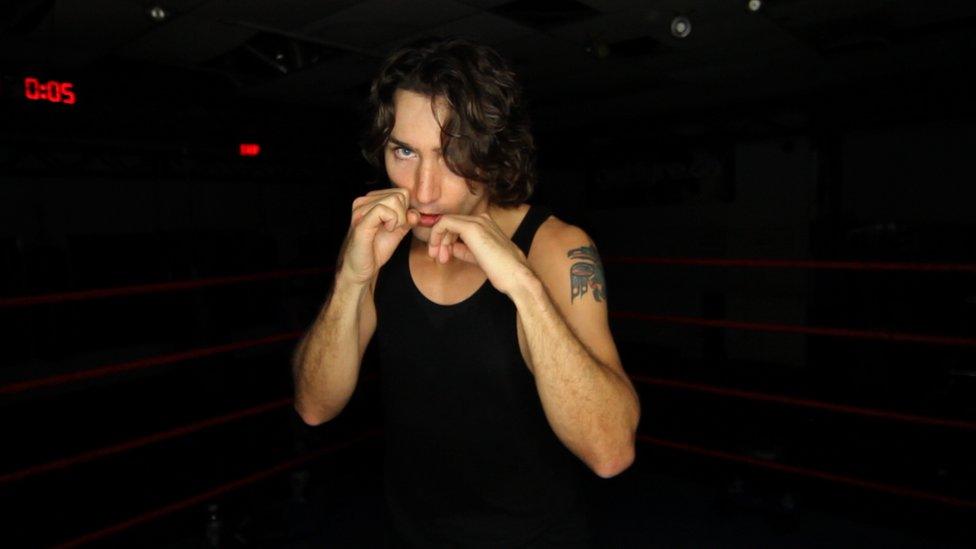
Justin Trudeau promised 'sunny ways' but has occasionally shown his pugilistic side
Those bumps in the road have yet to be reflected in Mr Trudeau's polling. He currently holds a 56% approval rating.
"People will cut you a lot more more slack if they just like a person," said Mr Bozinoff. "He has a reservoir of goodwill going into a second year."
Fighting ways
While Mr Trudeau promised "sunny ways" on election night, he shows flashes of his pugilistic side.
He told the BBC proudly in November that he left his Canadian critics "in the dust".
In May, he elbowed a fellow member of Parliament and tugged the arm of another after growing impatient over what was seen as an attempt to slow the course of a vote in the House of Commons.
Even before becoming prime minister, he demonstrated a willingness to be politically ruthless.
In 2015, Mr Trudeau permanently expelled two MPs accused of sexual harassment from the Liberal fold. The year before, he removed all Liberal senators from the party caucus to show he was serious about reducing partisanship in the Senate.
It is that part of his temperament that should prove useful as he enters into a more difficult second year.
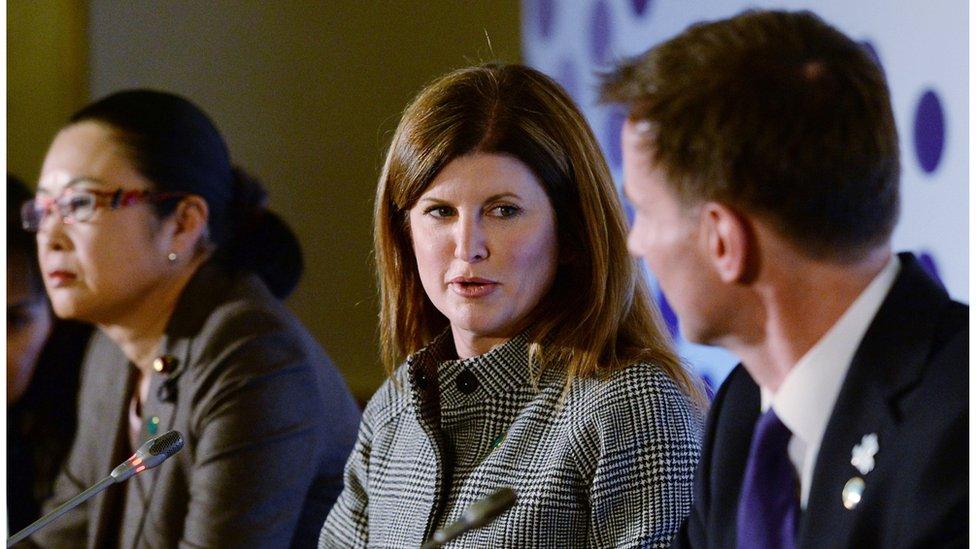
The Conservatives will replace interim leader Rona Ambrose next May.
Two opposition parties - the Conservatives and the New Democrats - will have new leaders in place ready to challenge Mr Trudeau in 2017 as his government faces increasingly difficult policy challenges.
Legal pot, electoral reform
His party has promised to legalize marijuana in 2017, though they still have to figure out how the potential CA$10bn ($7.6bn/£ 6.2bn market for pot, external will be regulated.
The Liberals will have to follow through on the politically divisive promise to change the way Canadians vote, external in federal elections.
And Mr Trudeau will have to make decisions on hot-button issues like energy pipelines and anti-terrorism laws.
"He's getting into the type of issues in this second year that are less consensus based," Mr Bozinoff said."The free ride the liberals have been getting - that will disappear."
- Published23 September 2016
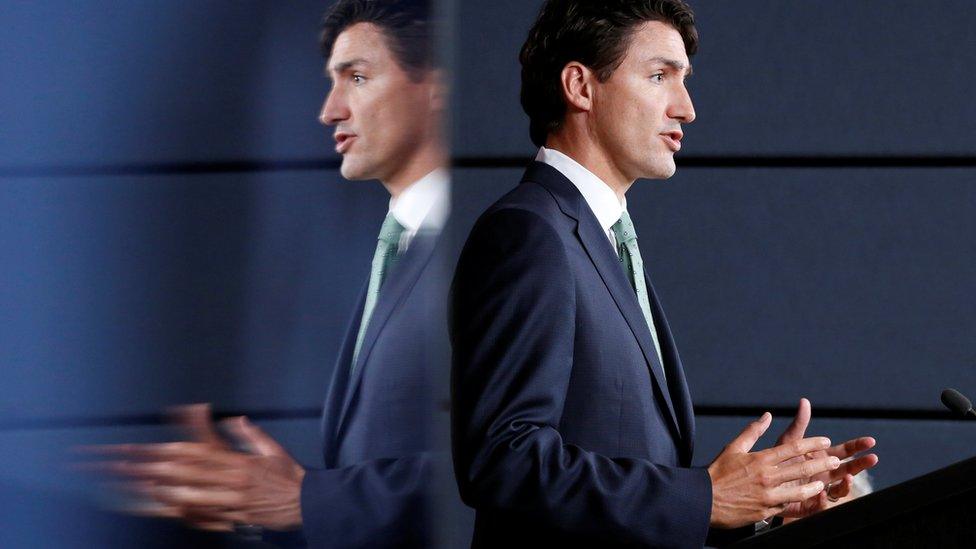
- Published30 November 2015
